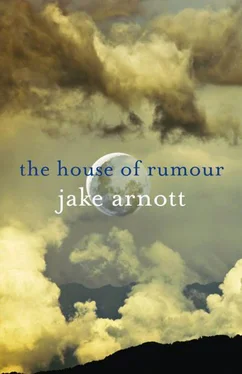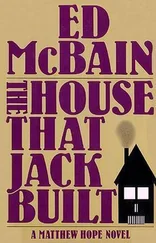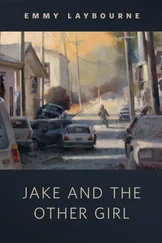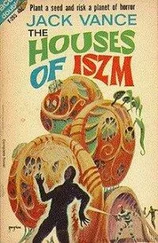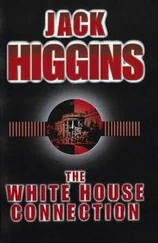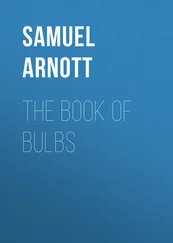We all ended up in a bar on South Broadway one night. It wasn’t long before the conversation turned to science fiction and the flying saucer story Larry and Nemo had been working on together, which had come out of their long-running discussions on the subject. A spacecraft is spotted in the sky above Los Angeles. There is panic in the streets and an attempt by the authorities to explain the incident as natural phenomena. An exile from another planet seeks refuge on earth. As more spaceships arrive, looking for him, the alien goes into hiding.
Dexter got very excited and declared that this would make a great movie. The nation was still gripped in a flying saucer craze, after all. We talked into the night, soon convincing ourselves that this could be a vehicle for so many interesting ideas and a way of exploiting a popular market.
That week Nemo and Larry got a story treatment together and Dexter used it to raise some finance for them to write the script. We called it Fugitive Alien , and it all started to come together very quickly. I loved working with Dexter; he was so good at talking an idea into reality. I spent a lot of time with him at meetings, and it was fascinating watching him operate. And we went out to all kinds of places. He was into bebop and modern art, poetry and European cinema. He always seemed easy to be with. Cool but affable, sophisticated but relaxed with it.
There were constant notes and suggestions from him at script meetings. He had an original, playful mind and he was good at drawing out the thoughts of others, particularly Nemo. A theme emerged of a dissident from an advanced civilisation, exiled from a planet where once-utopian ideals had been corrupted by absolute power. Dexter declared that he was serious about using complex concepts in a popular genre.
Speculative fiction continued to be on the rise. There were reprints of our old stories in magazines and anthologies as well as a demand for new ones. And although Larry’s ‘proper’ novel was roundly rejected, a New York publisher reissued Lords of the Black Sun as a paperback original that summer. Our once-beloved Astounding may have gone into decline (John W. Campbell had got taken in by a new therapy idea that L. Ron Hubbard was peddling, something called ‘Dianetics’, and was devoting the main pages to it) but we learnt that Tony Boucher was going to edit a new title: The Magazine of Fantasy & Science Fiction . And Boucher had just made the first English translation of Jorge Luis Borges, the Argentine writer that Nemo had told us about all those years ago at Robert Heinlein’s house. ‘The Garden of Forking Paths’ made its first appearance in English in the Ellery Queen’s Mystery Magazine in 1948.
We were about to go into pre-production with Fugitive Alien . I had taken what Larry and Nemo had done and edited it into a shooting script. We had cast the leads: Trey Anderson, an ageing juvenile with an other-wordly charm as the alien; Sharleen Stirling, a seventeen-year-old newcomer, as the earthly blonde ingénue who falls for him. A crew was being assembled and we were using the designer from Zombie Lagoon . All we really needed was a director. Dexter told me that he had somebody in mind but he wouldn’t say who. Instead he suggested that we take the weekend off and go to Palm Springs together.
‘But we really need to confirm who’s directing,’ I said.
‘Well.’ He gave me a sly smile. ‘We can do that right now, can’t we?’
‘What do you mean?’
‘I can’t think of anyone who could do it better.’
‘You mean…’
‘You know this trade inside out. All good script girls do. And I saw you taking over on the zombie film, remember?’
‘But I couldn’t—’
‘Why not? Because you’re a woman?’
‘No, it’s just…’
‘Don’t worry, of course everyone is going to try to hold you back but just don’t do their job for them. Okay?’
‘Okay.’
‘Right. You’re hired. We’ve got a lot of prepping to do this week and I’ll want your input. As a director.’
All at once I felt ridiculously happy. At last things were going right for me. I went over and kissed Dexter on the mouth. He pulled away from me and smiled.
‘Hey,’ he said, ‘you better get to work. I’ll pick you up on Friday afternoon.’
I was packing an overnight bag on Thursday evening when the phone rang. I assumed it would be Dexter. It was Jack. His voice was hoarse and slurred, tragic. Candy had left him. He needed to see me. He was staying in a motel out on 53rd and Western.
For an instant I was overwhelmed by a sense of relief. That finally I could say no to Jack Parsons, that everything in my life would be turned around by my saying no to him. This would be my way of getting over all the hurt I had been carrying around since he came back from the Mojave Desert that day. All I had to do was say a few words and put the phone down. But I couldn’t speak and the receiver stayed in my hand as I heard Jack tell me his room number.
‘Okay,’ I mumbled and the line went dead.
I felt all the mad passion and desire come to claim me once more. And suddenly I knew that a luxurious weekend in Palm Springs with the kind and charming Dexter was nothing compared with a night in a seedy motel room with my fallen angel.
I called Dexter and told him that I had a family crisis. My mother was sick and I needed to go to the hospital. I was sorry but I couldn’t go away with him that weekend. Then I finished packing and drove out to see Jack. He came to the door wearing a grubby singlet. Unshaven, wild-eyed and dishevelled, he’d put on a bit of weight but he was still beautiful. He was doomed, I saw that even then. Jack was a real romantic, full of danger and self-destructiveness. I knew that, like a drowning man, he would drag down those who came close to him. My love for him could ruin me but I didn’t care.
As I moved into the room I saw an ashtray on the bedside table with reefer butts in it, and a bottle of tequila on the dresser. Jack went to the window, nervously fingering the slants on the blind.
‘Did anyone see you come?’ he asked. ‘I’ve got to be careful. They’re watching me.’
Jack explained that he had been investigated over his past activities. He’d managed to get security clearance for a job at Hughes Aircraft in Culver City, but he was sure that he was still under surveillance.
‘It’s only temporary. I’m just a pen-pusher in their rocket propulsion department. But I’ve got plans. I’m going to make a fresh start, Mary-Lou.’
He came over to me, his hands held out plaintively.
‘What about Candy?’ I asked.
‘She’s in San Miguel de Allende, south of the border. Some kind of artists’ colony. She never really understood me, not the way you did.’
‘I waited for you, Jack. All that time that you were with Betty. Then out in the desert with Ron. I waited for you and then you went off with her. It wasn’t fair.’
‘I know, Mary-Lou, I know. I’ve been bad. Everything’s gone wrong.’
He poured us both a drink and told me how, left on his own, he had descended into madness and horror, conducting strange ceremonies on peyote and mescaline, hiring hookers to perform sex magic rituals with him. The Babalon Working had failed, he groaned; he had lost his Scarlet Woman and a chance to conjure a moonchild.
‘Maybe it’s all nonsense anyway,’ I said.
He laughed. I wanted to free myself from all my beliefs and delusions. I wanted to obliterate my desire for Jack and break the spell that he still held over me. But the strangest mystery of all is how we can be utterly taken in by our own stupid emotions. Jack lit a reefer and sat on the bed.
‘I’ve got a new quest,’ he said. ‘I’m getting out of this wretched place. I’m going to make the Black Pilgrimage.’
Читать дальше
